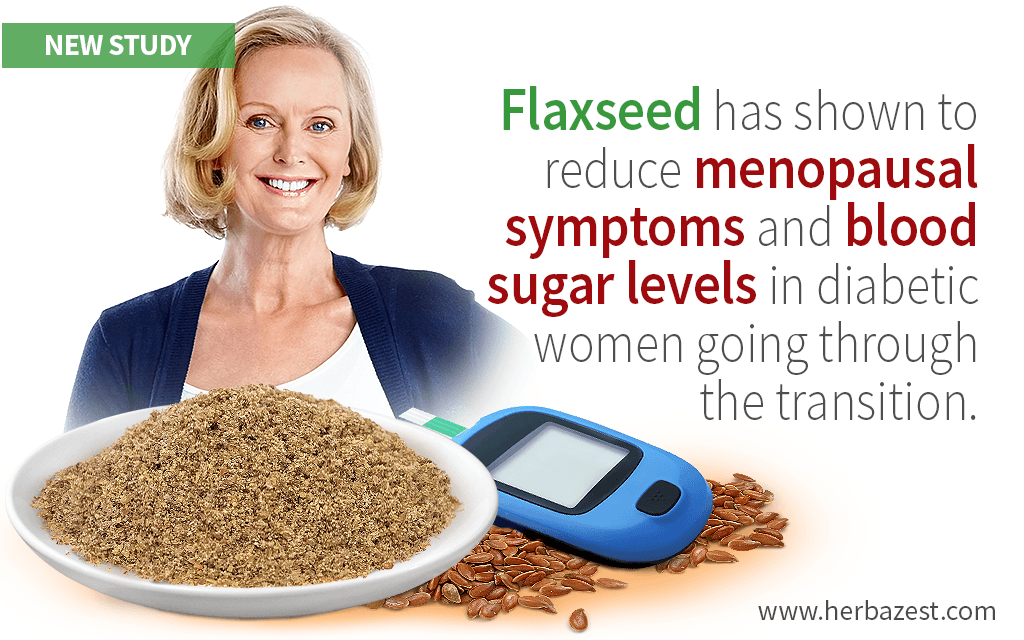Flax is arguably one of the healthiest foods out there. It is rich in healthy fats, soluble and insoluble fiber, protein, and antioxidants. It is also packed with phytoestrogens, which are plant-based compounds that have shown to benefit women going through the midlife transition.1
In this clinical trial, Indian scientists took a closer look at the potential benefits of flaxseed for menopause, including its effects on nutrient intake, blood glucose levels, and menopause symptoms of diabetic women.
The Study
The trial involved 90 women, between the ages of 45 and 55, who have had diabetes for 3-4 years. Researchers collected a wide variety of information about the participants, including their lifestyle practices, dietary intakes, and menopausal symptoms. Women also had their fasting blood glucose levels tested.
Then, they were divided into three groups and given their corresponding treatment:
- Group 1 consumed 15 grams of ground flaxseed daily
- Group 2 consumed 20 grams of ground flaxseed daily
- Group 3 (the control group) received no treatment
Women added ground flaxseed to everyday meals or mixed it with water or milk. The trial lasted for two months.
The Results
Both flax groups had substantial decreases in fasting and post-prandial blood sugar levels. These effects were particularly visible with the 20-gram dosage as compared to the 15-gram dosage.
Women taking flax also experienced significant reductions in menopause symptoms, especially hot flashes, burning sensation, joint pain, depression, and others.
Obesity was identified as the main cause of diabetes among the female participants. Regarding lifestyle practices, almost 87% of women did not partake in regular exercise. Watching TV was the most popular means of relaxation.
Also, during the trial, there were significant changes in the eating patterns in the flaxseed groups, including consuming fewer calories, fewer carbohydrates, and fewer fats, among others.
What Does this Mean?
This trial sheds light on flax's benefits for menopause, particularly its effects on relieving symptoms and improving blood glucose levels in diabetic women going through the transition. These results are important as they offer a safe treatment option that is widely available and easy to use.
The effects of flax on blood glucose levels are mostly attributed to its fiber content, which delays post-prandial blood glucose absorption. Improvements in menopause symptoms, on the other hand, are linked to flax's phytoestrogens.
Besides using flax for menopause, the authors of this trial emphasized the importance of implementing wholesome practices. It's been shown that exercising regularly, listening to music, and maintaining adequate sleep hygiene can help better manage both diabetes and menopause symptoms.
Other herbs that can help relieve menopausal symptoms are maca, fennel, and dong quai.
Sources
- Studies on Ethno-Medicine, Efficacy of Flaxseed Supplementation on Nutrient Intake and Other Lifestyle Pattern in Menopausal Diabetic Females, 2017
Footnotes:
- Pharmacognosy Review. (2011). Phytoestrogens in postmenopausal indications: A theoretical perspective. Retrieved November 30, 2023, from https://www.ncbi.nlm.nih.gov/pmc/articles/PMC3210008/




